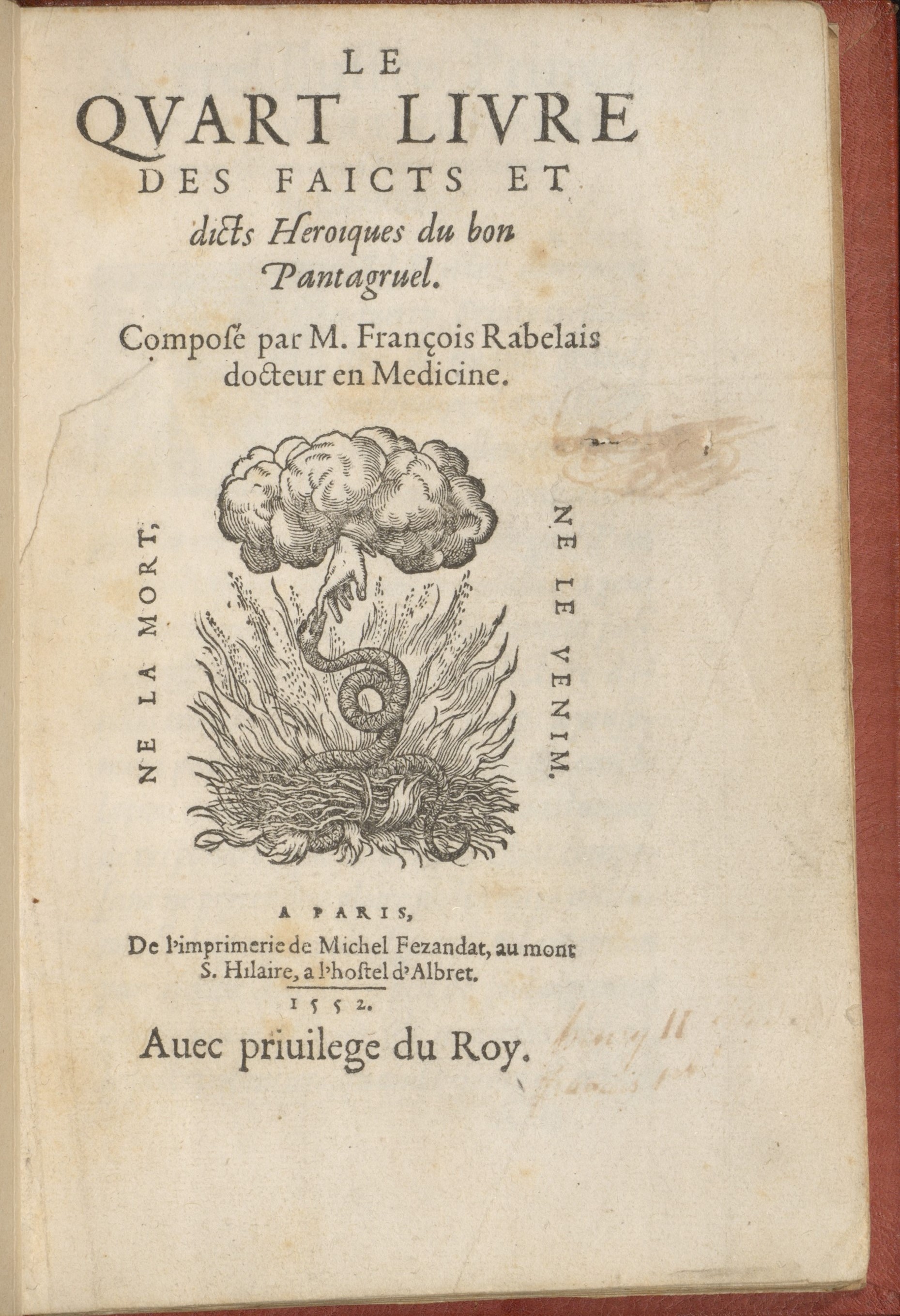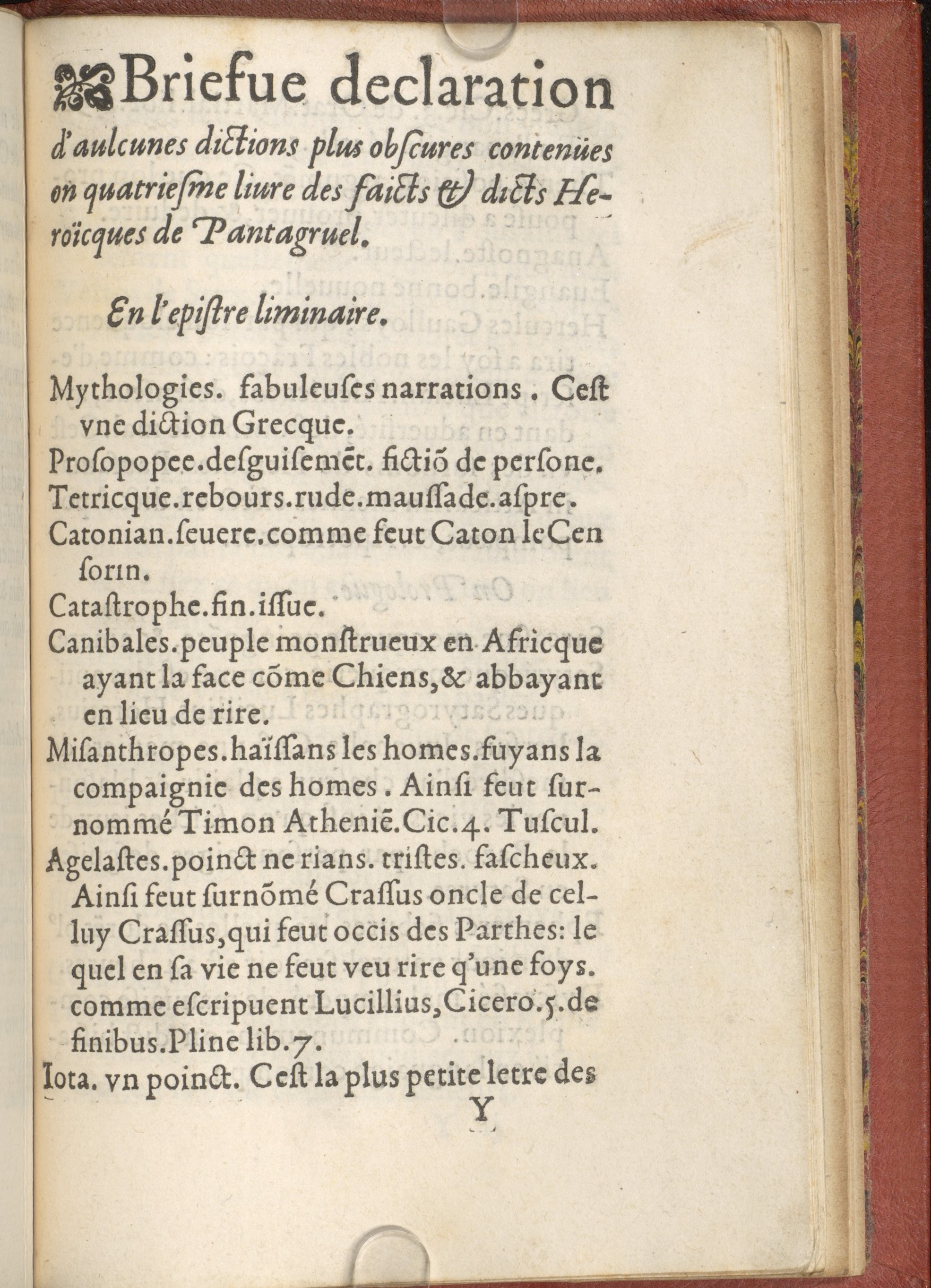Anatole France’s Quart livre
AA haunting, fascinating journey, the Quart livre figures prominently in the Bibliotheca Bodmeriana. Martin Bodmer purchased a precious piece from 1552 which had previously belonged to Anatole France, the star of the French literary world before 1914 and fervent admirer of Rabelais.
The Quart livre, the master’s final work, is nothing less than his literary testament. An oceanic final testament, as Panurge dreams during the storm. The editorial history of this culminating book is a complicated one: it first appeared, in 1548, unfinished, mysterious and atrophied and then, in 1552, as a monstrous masterpiece, so powerful, so wry, so frightening, so typical of Rabelais’ late style. A journey to the edge of possible worlds, cutting across all books and all human monstrosities, it is Pliny’s natural history disfigured by Hieronymus Bosch, Homer’s Odyssey as seen through the eyes of Basochien reader of Lucien, with Villon’s violence and Plutarch’s erudition. Novarina called Rabelais “luminously incomprehensible.” Nowhere is this so apparent as in the lucid chaos of the Quart livre.


The Bibliotheca Bodmeriana holds one of the remaining ten copies of the 1552 edition, published by Michel Fezandat. Nearly each one of these exempla exists in a different state (proofs, leafed pages, presence or absence of the ‘Brief Declaration’). The Bodmer holding contains this Briefve declaration, a small pseudo-serious lexicon comprised of glosses on the “obscure terms [dictions obscures]” adored by Rabelais the lexicographer, and which was the last work of his lifetime. Cocteau said that a book was nothing but a jumbled dictionary. The whole of the Quart livre leads up to this little glossary, the sum of Rabelais’ linguistic passions…
After all that navigation, Rabelais abandons the Pantagruelists in the middle of the sea. We’ll never have the final word of the Divine Bottle we had originally set out…but in its place, a comic glossary: this Briefve declaration.

